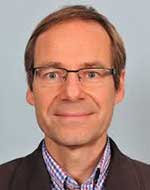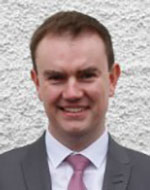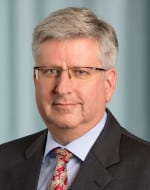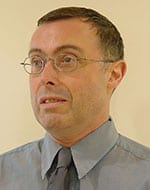Date: Wednesday, 17 April 2019
Time: 11:00-18:30
Room: C1060
ROOM CHANGE: VERT4-2: Industrial Internet of Things (14:00) and VERT4-3: Industrial Internet of Things (16:30) have moved to room ERB-001.
Track Description
The digitization and automation of industrial enterprises, processes and infrastructures is creating a disruptive change for the industrial sector. This is affecting manufacturing processes, building management, environmental processes, and transportation and logistic systems in a profound manner. The digitization and automation is driven largely by Internet of Things technologies.
IoT and automation is leading to mass customization in manufacturing. In particular the concept of the digital twin allows new products to be developed and tested before any physical process is started but once design is fixed, the manufacturing processes are then automatically configured and controlled to manufacture the specific design. The flexible deployment, allocation and orchestration of sensing and actuation, communication and computing resources and services are a key enabler.
At the same time, IoT is not only transforming the actual manufacturing processes but affecting the whole lifecycle of production and delivery of new products from raw materials to manufacturing to the delivery to end users, to the product’s use and its recycling or reuse, thus enabling a circular economy. Next generation mobile/wireless networks will play a key role in this such as 5G and low power wide area networks.
This vertical track will feature invited speakers from industry and academia and special papers that address forward looking topics in IoT technologies for the industrial space and discuss how the advancement of industrial IoT is transforming industry. Topics that will be addressed include
- Dependable networks for automation systems
- The Internet of Things and the digital twin
- Virtualization of manufacturing networks
- 5G and low power wide area networks for industrial IoT
- Cyber-physical manufacturing systems
- Edge and mobile cloud computing in industrial IoT
- Industrial IoT Cybersecurity
- Robust and Reliable IoT
- Intelligent Industrial IoT systems
Schedule
11:00-13:00 Session 1
Talk 1 “Pathways to Digitalisation of Manufacturing”, Chris Decubber, EFFRA
Talk 2 “Industrial IoT – Challenges and Use Cases”, Christopher Ganz, ABB
Talk 3 “Future Factory – From IoT Enabled Digital Twins to Smart Business Models”, Conor McCarthy, University of Limerick
Panel Discussion
13:00-14:00 Lunch
14:00-16:00 Session 2
Talk 4 “Challenges in Industrial IoT”, Stephen Mellor, Industrial Internet Consortium
Talk 5 “Industrial IoT – Are We Meeting Expectations?”, Eleni Pratsini, Accenture Technology
Talk 6 Liam Quinn, Dell EMC
Panel Discussion
16:00-16:30 Coffee Break
16:30-18:30 Session 3
Talk 7 “Robust Networking with RIOT – A Path to Adaptive Industrial Communication”, Thomas Schmidt, Hamburg University of Applied Sciences
Talk 8 “Systems Engineering for Strategic Value in Industrial Workplaces”, Bruce Hecht, Analog Devices and Eoin English, Analog Devices
Talk 9 “Don’t Forget the Wires”, David Law, Hewlett Packard Enterprise
Panel Discussion
Wrap-up and Summary
Track Co-Chairs
Dirk Pesch, University College Cork
Dirk Pesch is a Professor in the School of Computer Science and Information Technology at University College Cork in Cork, Ireland. Dirk’s research interests focus on architecture, design, algorithms, and performance evaluation of low power, dense and moving wireless/mobile networks and services for Internet of Things and Cyber-Physical System’s applications and interoperability issues associated with IoT applications. He has over 25 years research and development experience in both industry and academia and has (co-)authored over 200 scientific articles. He is involved in a number of Irish national collaborative research centres, the CONNECT Centre for Future Networks and the CONFIRM Centre for Smart Manufacturing. He has also been active in many EU funded research projects, having coordinated the FP7 SCUBA and GENiC projects focused on smart building and data centre energy efficiency. Dirk is on the editorial board of Springer’s Wireless Networks and the International Journal of Distributed Sensor Networks and contributes to international conference organization in his area of expertise. He is a senior member of the IEEE and a member of the ACM. Dirk received a Dipl.Ing. degree from RWTH Aachen University, Germany, and a PhD from the University of Strathclyde, Glasgow, Scotland, both in Electrical & Electronic Engineering.
Theocharis (Theo) Theocharides, University of Cyprus
 Theocharis (Theo) Theocharides is an Associate Professor in the Department of Electrical and Computer Engineering, at the University of Cyprus. Theocharis received his Ph.D. in Computer Engineering from Penn State University, working in the areas of low-power computer architectures and reliable system design. Theocharis was honored with the Robert M. Owens Memorial Scholarship in May 2005. He has been with the Electrical and Computer Engineering department at the University of Cyprus since 2006, where he directs the Embedded and Application-Specific Systems-on-Chip Laboratory. His research focuses on the design, development, implementation and deployment of low-power and reliable on-chip application-specific architectures, low-power VLSI design, real-time embedded systems design and exploration of energy-reliability trade-offs for Systems on Chip and Embedded Systems. His focus lies on acceleration of computer vision and artificial intelligence algorithms in hardware, geared towards edge computing, and in utilizing reconfigurable hardware towards self-aware, evolvable edge computing systems. He serves on several organizing and technical program committees of various conferences, is a Senior Member of the IEEE, a member of the ACM, and an Associate Editor for IEEE Consumer Electronics magazine and the ETRI journal. He also serves on the Editorial Boards of IEEE Design & Test magazine, and ACM Transactions on Embedded Computing Systems.
Theocharis (Theo) Theocharides is an Associate Professor in the Department of Electrical and Computer Engineering, at the University of Cyprus. Theocharis received his Ph.D. in Computer Engineering from Penn State University, working in the areas of low-power computer architectures and reliable system design. Theocharis was honored with the Robert M. Owens Memorial Scholarship in May 2005. He has been with the Electrical and Computer Engineering department at the University of Cyprus since 2006, where he directs the Embedded and Application-Specific Systems-on-Chip Laboratory. His research focuses on the design, development, implementation and deployment of low-power and reliable on-chip application-specific architectures, low-power VLSI design, real-time embedded systems design and exploration of energy-reliability trade-offs for Systems on Chip and Embedded Systems. His focus lies on acceleration of computer vision and artificial intelligence algorithms in hardware, geared towards edge computing, and in utilizing reconfigurable hardware towards self-aware, evolvable edge computing systems. He serves on several organizing and technical program committees of various conferences, is a Senior Member of the IEEE, a member of the ACM, and an Associate Editor for IEEE Consumer Electronics magazine and the ETRI journal. He also serves on the Editorial Boards of IEEE Design & Test magazine, and ACM Transactions on Embedded Computing Systems.
Track Speakers
Chris Decubber
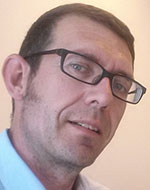 After obtaining his master of electro-mechanical engineering at the University of Leuven, Chris got involved fairly quickly in European research and innovation programmes.
After obtaining his master of electro-mechanical engineering at the University of Leuven, Chris got involved fairly quickly in European research and innovation programmes.
At EFFRA, Chris Decubber aims at generating consensus on research and innovation priorities among the industrial and research community for the ‘Factories of the Future’ PPP. Chris coordinates the monitoring of the outcome and progress of the ‘Factories of the Future’ PPP and works on knowledge transfer mechanisms that enhance the impact of the FoF PPP. Chris also initiated the ConnectedFactories Coordination Action which focuses on the developing pathways to the digitalisation of manufacturing.
EFFRA – The European Factories of the Future Research Association (EFFRA) is an industry-driven association promoting the development of new and innovative production technologies. It is the official representative of the private side in the ‘Factories of the Future’ public-private partnership under Horizon 2020. The partnership aims at bringing together private and public resources in an industry-led research and innovation programme that generates and demonstrates technologies for a wide range of manufacturing sectors.
Talk Title: Pathways to Digitalisation of Manufacturing
Pathways to digitalisation of manufacturing reflect how digitalisation and eventually the deployment of digital platforms can bring value within different kinds of manufacturing perspectives, such as factory automation, value networks or product-service development. The pathways enhance the awareness among different stakeholders about the actual and future use of digital technologies in manufacturing and facilitate the migration from legacy situations towards innovative approaches.
Eoin English
Eoin English leads the Consumer Senor Processing Technology Team in the area of advanced technology and system engineering at Analog Devices’ European Research and development centre in Limerick. Primary challenges relate to understanding customer’s systems and technology direction, prototyping proof of concepts to enhance technology system domain expertise and technology road mapping.
Eoin joined Analog Devices in 1997 having graduated with a first-class honours BENG in electronic engineering from University College Galway in 1997. In his twenty-two years at Analog Devices Eoin has worked on many high-performance mixed signal integrated circuit products for Industrial and Consumer markets and applications.
Analog Devices has evolved and is evolving from being a valued component supplier to a company that solves more of our customers system problems, bringing value to customers. System thinking and System Engineering practices play an important role in solving the right problems followed by solving them right. To enhance his skills in system engineering practices Eoin completed a certificate in System Design Management at MIT in 2017. Eoin currently holds 21 Granted US patents and is now primarily focused on the challenges of Mixed Reality.
Talk Title: Systems Engineering for Strategic Value in Industrial Workplaces
Christopher Ganz
Dr. Christopher Ganz is Group Vice President for Service and Digital Research & Development, responsible for improving service aspects in research and development and for cross-division projects in the area of service and digital technologies, including remote services, internet of things (IoT) and artificial intelligence (AI) initiatives. Having joined ABB in 1995, he was involved in developing the company’s digital strategy and is a valued member of the group technology management team. Christopher is also an associate member of the Industrial Internet Consortium steering committee.
Christopher began his professional career at ABB, holding positions of increasing responsibility in research and development. Prior to his current role, Christopher was a Research Program Manager leading a corporate research program in control and optimization. Before that he was Manager Research & Development and Product Manager in ABB’s power plant control unit.
Christopher holds a doctoral degree from ETH Zurich with a focus on Automatic Control and an undergraduate degree in electrical engineering from the same institute. His academic and professional credentials have made him a renowned speaker on digital technology topics worldwide.
Talk Title: Industrial IoT – Challenges and Use Cases
Some of the most cited trends in industry today are the Industrial Internet (of Things), and Industrie 4.0. They both propagate the use of new technologies to connect devices, collect data, and analyze data from different sources to gain insight into industrial operations. However, if no actions are initiated to resolve the discovered issues, there is no gain in productivity, and hence no customer benefit. Closing the loop is essential to achieve continuous improvement in industry. In the past, this was typically solved using automation and production optimization systems on site. Cloud-based applications provide higher computing power and the capability to analyze more data from globally distributed sources.
However, unlike in consumer IoT, where a device directly connects to a cloud, the existing infrastructure in a plant cannot be ignored. The seamless interaction between on-site automation systems and cloud-based analytics is essential for the optimal implementation of an industrial IoT solution. An end-to-end architecture that combines device-level control, plant-level automation, and enterprise level optimization with cross-organizational use of data analytics in the cloud offers the required flexibility to implement customer’s requirements in the most efficient way.
By combining domain knowledge from the industrial application, the insight into the functions and requirements of an automation system, and the expertise to implement advanced data science and AI algorithms in the cloud, automation can be brought to the next level, making industrial systems more autonomous.
Bruce Hecht
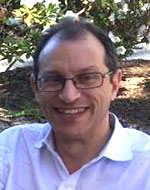 Bruce Hecht is with Analog Devices Global Operations & Technology where he applies over 25 years’ experience in the development of New Products and New Technologies in hardware, software, and systems engineering. Bruce’s focus is on the intersection of design, learning, and leadership and has successfully grown new product portfolios in instrumentation and industrial products, healthcare devices and systems, and automotive applications.
Bruce Hecht is with Analog Devices Global Operations & Technology where he applies over 25 years’ experience in the development of New Products and New Technologies in hardware, software, and systems engineering. Bruce’s focus is on the intersection of design, learning, and leadership and has successfully grown new product portfolios in instrumentation and industrial products, healthcare devices and systems, and automotive applications.
From Montreal, Quebec, Canada, Bruce studied at the University of Waterloo, earning his BASc/MASc focused on EE, Math, Design & Systems Engineering. He holds a Certified Achievement in Alliance Management from the Association of Strategic Alliance Professionals and a Certified Six Sigma Black Belt through the American Society for Quality. Bruce is a member of the Corporate Advisory Board for INCOSE and serves on several working groups including Product Line Engineering, Systems Security Engineering, and Systems Science.
Bruce is an IEEE Senior Member and has served as guest editor for the IEEE Journal of Solid-State Circuits. He is currently a member of the steering committee for the IEEE Design & Test Magazine. He has served in many conference roles, including the launch of the IEEE Future Leaders Forum, and serving as the Technical Program Committee Chair and General Chair of local and international conferences, including Bipolar/BiCMOS Technical Meeting (BCTM) in Boston and Bordeaux. He is on the AdCom boards for the IEEE EMBS, SSCS, Biometrics Council, and the IEEE Sensors Council.
In 2017, Bruce achieved the Executive Certificate in Management & Leadership in the Greater Boston Leadership Program at MIT and has been an MIT Advanced Study Program Fellow in 2014-2016. He is a mentor and advisor for participants in the MIT Systems Design and Management program connecting systems engineering, systems, architecture, and methodology for safety and security engineering.
This year, Bruce is building on this work through coaching executive leaders and technical professionals through the Brown University / ACT program in Coaching for Leadership and Performance, and how these skills are being used to enhance systems engineering knowledge and capacity.
Together with educator and innovation champion, John Werner, Bruce co-founded the educational startup Ideas in Action, producing over 800 TEDxBeaconStreet talks. He shares curiosity-driven design with his family and 3 children in Brookline, Massachusetts and at opportunities to learn around the globe.
Talk Title: Systems Engineering for Strategic Value in Industrial Workplaces
David Law
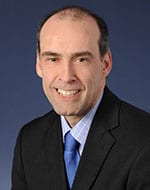 David Law, Hewlett Packard Enterprise, Distinguished Technologist
David Law, Hewlett Packard Enterprise, Distinguished Technologist
David has worked on the specification and development of Ethernet products since 1989 including the development of Ethernet adapter cards, the first stackable Ethernet repeaters, stackable Ethernet switches, as well as being the technical lead on ASIC development teams for stackable repeaters and switching chipsets. Throughout this time David has been a member of the IEEE 802.3 Ethernet Working Group.
David currently serves as IEEE 802.3 Chair, having served as IEEE 802.3 Vice Chair from 1996 to March 2008. David currently also serves as a member of the IEEE-Standards Association (IEEE-SA) Standards Board and has served in a number of other IEEE-SA governance positions include chair of the IEEE-SA Review Committee (RevCom) from 2008 to 2012 and member of the IEEE-SA Standards Board from 2005 to 2014.
David has received the IEEE-SA Standards Medallion, the IEEE-SA Standards Board Distinguished Service Award, the IEEE-SA International Award, the 2016 IEEE Computer Society Karlsson Award, and the 2017 IEEE Charles Proteus Steinmetz Award. David earned his BEng (Hons) in Electrical and Electronic Engineering at Strathclyde University, Glasgow, Scotland, UK, and is based in Scotland.
Talk Title: Don’t Forget the Wires
The IEEE 802.3 Ethernet standard continues on a steady path of enabling higher speeds for existing application areas, as well as enabling the use of Ethernet in new application areas such as Industrial Control. This talk will examine the IEEE P802.3cg 10 Mb/s Single Pair Ethernet project. Automation industries have begun the transition from legacy networks to Ethernet. As a result, there is a growing need for a 10 Mb/s Ethernet intrasystem control solution that operates over a single balanced pair of conductors. The IEEE P802.3cg project addresses this application space, and also includes associated provision of power over the data lines common in industrial control applications. Because IEEE 802.3 does not currently support 10 Mb/s over a single balanced pair of conductors, a reduction in the number of pairs of conductors and interface components required for 10 Mb/s Ethernet will provide a basis for an optimized solution in these applications.
Conor McCarthy

Prof. Conor McCarthy is the Centre Director for Confirm – Smart Manufacturing, a Science Foundation Ireland funded research centre looking at future digital manufacturing technologies and cyber-physical manufacturing systems. Confirm is funded at €47M over 6 years and has over 40 industry partners. The centre is headquartered at the University of Limerick, with dedicated digital manufacturing facilities, and has 7 academic partners. Prof. McCarthy is Chair of Lightweight Structures at the University of Limerick, with research interests in digital twin technology for high performance design, development, manufacturing and testing of structural joints. He has published over 150 articles in leading Journals and at International conferences, and citations to his works exceed 2350. Prof. McCarthy is a Science Foundation Ireland Principle Investigator and leads major research programmes in Engineering Science. His other research interests include bolted, bonded and thermally joined composites, multi-scale damage mechanics and non-linear finite element analysis and he currently leads a large research group looking at novel joining methods (see www.falcom.ie). Prof. McCarthy has supervised 12 PhD and 2 research masters students to completion, who have gone on to leading academic and research and development positions in companies such as Nokia, Airbus, Stryker, Wood Group and others.
Stephen Mellor
Stephen Mellor is the Chief Technical Officer for the Industrial Internet Consortium, where he directs the standards requirements and technology & security priorities for the Industrial Internet. In that role, he coordinates the activities of the several engineering, architecture, security and testbed working groups and teams.
Talk Title: Challenges in Industrial IIoT
The technology drivers behind consumer IoT and industrial IoT are broadly the same–ubiquitous connectivity, big data, cheap sensors and computing power—but the business drivers are different. Security for your wearable is obviously important, but security (or, more generally, trustworthiness) for manufacturing, healthcare and transportation needs to be rather more robust: the requirements are “industrial strength”. Moreover, price is king in the consumer market, while return on investment is key in industry.
IIoT has the potential to change economies and societies drastically, but that won’t happen by itself. We need to test new technologies and new business models; we need common frameworks; we need standards suitable for industry. The Industrial Internet Consortium was founded five years ago to build an ecosystem to accelerate global adoption of the industrial internet.
This presentation will outline the challenges, progress so far, what we are doing now and plan for the future.
Eleni Pratsini
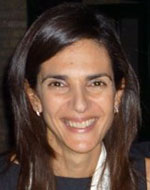 Eleni Pratsini is Managing Director at Accenture Technology, leading the growth of AI applications in business in Europe. Prior to joining Accenture in January 2018, Eleni spent 14 years at IBM Research, leading research teams in Advanced Analytics and AI. In her most recent roles, she was Director of Cognitive IoT Solutions and Lab Director of IBM Research – Dublin, Smarter Cities Technology Centre. Before joining IBM, she had a successful career in academia, first in the US as associate professor at Miami University, and then in Europe at the Swiss Federal Institute of Technology Zurich (ETHZ). Her work was recognized by a number of industrial and academic awards and research grants.
Eleni Pratsini is Managing Director at Accenture Technology, leading the growth of AI applications in business in Europe. Prior to joining Accenture in January 2018, Eleni spent 14 years at IBM Research, leading research teams in Advanced Analytics and AI. In her most recent roles, she was Director of Cognitive IoT Solutions and Lab Director of IBM Research – Dublin, Smarter Cities Technology Centre. Before joining IBM, she had a successful career in academia, first in the US as associate professor at Miami University, and then in Europe at the Swiss Federal Institute of Technology Zurich (ETHZ). Her work was recognized by a number of industrial and academic awards and research grants.
Eleni has a PhD in Quantitative Analysis and Industrial Engineering (U. of Cincinnati, USA), an MBA in Finance (UCLA, USA) and a B.Sc. in Civil Engineering (U. of Birmingham, U.K.).
Talk Title: Industrial IoT – Are We Meeting Expectations?
The Internet of Things is changing the way we interact with our surroundings. It is estimated that the number of connected devices will grow to 21 billion by 2020. The IoT is generating an explosion of sensor data, most of it is unstructured and multi-modal, requiring sophisticated techniques to analyze and interpret. We can only keep up with the complexity and unpredictability of this information through the use of intelligent computing systems that self-learn, reason and automatically adjust to the surroundings. The enterprise that can analyze the data on the fly and generate transformational decisions to constantly adapt to the changing environment will be a leader in its field. The rapid growth of technology and the resulting increase in expectations, bring up challenges both on the technical as well as the human side; both types of challenges need to be addressed for a successful implementation. In this presentation we will use industrial applications to motivate some of the advanced technologies, point out the practical and technical challenges, and highlight the business benefit from these technologies.
Liam Quinn
 Liam Quinn has been with Dell since 1997 and currently leads the Pan-Dell Technologies 5G strategy. Key areas of focus and research include, Converged mobility, Digital & Workforce Transformation, security & Manageability, IoT and xR with specific applications of augmented and virtual reality in areas of remote maintenance, gaming and 3D applications. Mr. Quinn holds has over 120 granted and pending US patents, and is a published Author on Networking. He was named Dell Inventor of the year in 2005, 2007 and 2014. He was an Associate Professor of Engineering at the Dublin Institute of Technology, the University of Texas Austin, and Texas State University. He is a frequent speaker at Wi-Fi and Networking Forums and also represents Dell on the boards of the Wi-Fi Alliance, and The Open Fog Consortium. Mr. Quinn has designed network systems and wireless solutions and has managed Engineering teams in systems architecture and product development. Mr. Quinn serves on the Engineering Advisory Board of the University of Texas Cockrell School of Engineering and the Texas State Ingram School of Engineering. Mr. Quinn hold undergraduate and graduate Degrees in Electrical Engineering and Computer Engineering.
Liam Quinn has been with Dell since 1997 and currently leads the Pan-Dell Technologies 5G strategy. Key areas of focus and research include, Converged mobility, Digital & Workforce Transformation, security & Manageability, IoT and xR with specific applications of augmented and virtual reality in areas of remote maintenance, gaming and 3D applications. Mr. Quinn holds has over 120 granted and pending US patents, and is a published Author on Networking. He was named Dell Inventor of the year in 2005, 2007 and 2014. He was an Associate Professor of Engineering at the Dublin Institute of Technology, the University of Texas Austin, and Texas State University. He is a frequent speaker at Wi-Fi and Networking Forums and also represents Dell on the boards of the Wi-Fi Alliance, and The Open Fog Consortium. Mr. Quinn has designed network systems and wireless solutions and has managed Engineering teams in systems architecture and product development. Mr. Quinn serves on the Engineering Advisory Board of the University of Texas Cockrell School of Engineering and the Texas State Ingram School of Engineering. Mr. Quinn hold undergraduate and graduate Degrees in Electrical Engineering and Computer Engineering.
Thomas Schmidt
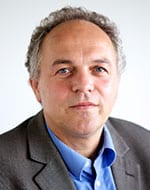 Thomas C. Schmidt is professor of Computer Networks and Internet Technologies at Hamburg University of Applied Sciences (HAW), where he heads the Internet Technologies research group (iNET). Prior to moving to Hamburg, he was director of a scientific computer centre in Berlin. He studied mathematics, physics and German literature at Freie Universitaet Berlin and University of Maryland, and received his Ph.D. from FU Berlin in 1993. Since then he has continuously conducted numerous national and international research projects. He was the principal investigator in a number of EU, nationally funded and industrial projects as well as visiting professor at the University of Reading, U.K.. His continued interests lie in the development, measurement, and analysis of large-scale distributed systems like the Internet or its offsprings. He serves as co-editor and technical expert in many occasions and is actively involved in the work of IETF and IRTF, where he co-chaired the SAM RG. Thomas is a co-founder and coordinator of the open source community developing the RIOT operating system – the friendly OS for the Internet of Things.
Thomas C. Schmidt is professor of Computer Networks and Internet Technologies at Hamburg University of Applied Sciences (HAW), where he heads the Internet Technologies research group (iNET). Prior to moving to Hamburg, he was director of a scientific computer centre in Berlin. He studied mathematics, physics and German literature at Freie Universitaet Berlin and University of Maryland, and received his Ph.D. from FU Berlin in 1993. Since then he has continuously conducted numerous national and international research projects. He was the principal investigator in a number of EU, nationally funded and industrial projects as well as visiting professor at the University of Reading, U.K.. His continued interests lie in the development, measurement, and analysis of large-scale distributed systems like the Internet or its offsprings. He serves as co-editor and technical expert in many occasions and is actively involved in the work of IETF and IRTF, where he co-chaired the SAM RG. Thomas is a co-founder and coordinator of the open source community developing the RIOT operating system – the friendly OS for the Internet of Things.
Talk Title: Robust Networking with RIOT – A Path to Adaptive Industrial Communication
The Internet of Things (IoT) is rapidly evolving from large numbers of embedded devices that gradually connect to the Internet. Such nodes are often (very) constrained and limited to battery-powered low power lossy radio links. RIOT, the friendly operating system for the IoT, is an open source initiative for fueling an IoT ecosystem that is not locked in with vendors or service operators, but gives rise to an interoperable world of heterogeneous devices for various stakeholders.
This talk introduces the networking principles and architectures that turn the IoT into a robust and resilient distributed system while at the same time adapting to the specific needs and constraints of industrial use cases. It showcases security- and safety-critical applications from the forefront of robust and resilient low-power wireless communication with RIOT. RIOT networking offers (i) a modular architecture with generic interfaces for plugging in drivers, protocols, or entire stacks, (ii) support for multiple heterogeneous interfaces and stacks that can concurrently operate, and (iii) GNRC, its cleanly layered, recursively composed default network stack. Focussing on deployability, we discuss and analyse the latest IoT networking approaches including 6Low and Information Centric Networking with a special focus on reliability for industrial applications.



